“Regency” is the era in England when the Prince of Wales became Regent, or the ruler, in place of his father, King George III, who was declared legally mad and therefore unfit to rule. Because he was the Prince Regent, the period is called the Regency. The true Regency officially began in 1811 and ended in 1820 when George III died, and Prince George became King George IV.
However, there is also an expanded Regency era which spanned from the late 18th century during the Napoleonic War, until Queen Victoria took the throne. This expanded Regency era is marked by classical influences and elegant designs. Books written by Georgette Heyer and Jane Austen, as well as the poet Lord Byron made it famous. When people think of Regency, they often think of books and movies such as Emma, Sense and Sensibility, and most of all, Pride and Prejudice. The Regency has its own terminology with which the modern reader may not be familiar.
The following are a few terms I often use in my books, or that you may find in other Regencies, that bear explanation:
Abigail: A term for an inexperienced lady’s maid. A coveted position within a household among servants, the abigail or lady’s maid cared for her lady’s needs including grooming, dressing, and personal care, as well as her lady’s clothing.
Almack’s: Assembly rooms on King Street in London which held exclusive subscription balls each Wednesday night of the Season. Only those deemed worthy by the fastidious patronesses were awarded vouchers to enter. Said patronesses could be fussy about which ladies were allowed to attend, but reportedly weren’t quite as discriminating about the gentlemen allowed to enter such hallowed halls.
Apoplexy: A stroke.
Attorney: a lawyer who specialized in wills, deeds, settlements, and contracts. According to Rory Muir in his book Gentlemen of Uncertain Fortune, “Until the middle of the eighteenth century, attorneys and solicitors were distinctly different types of lawyer, but acts of Parliament in 1729 and 1750 removed the barriers between them, and they gradually merged into a single profession. In the late 18th and early nineteenth centuries ‘attorney’ was the term more commonly used, but during Queen Victoria’s reign ‘solicitor’ became the norm, and ‘attorney’ survived only in terms like ‘power of attorney and ‘Attorney-General.” Because attorney sounds modern and solicitor sounds historical to readers, I don’t use this term in my novels, but it is strictly, more accurate.
Banns: Public announcement in church of a proposed marriage posted on the outside of the bride and groom’s parish church and read aloud during church service for three consecutive Sundays, accompanied with a query as to whether anyone knew of any reason why the couple should not wed. Once the banns were read three times, without objection, the cleric issued a certificate allowing the couple to marry at one of their parish churches. People could marry by banns without having to purchase a marriage license, or they could purchase a marriage license and skip the reading of the banns.
Barrister: a trial lawyer, a gentleman both by birth and by profession, not considered a part of the working class because he was not paid a salary, but rather a gratuity.
Bluestocking: A lady with an unfashionable interest in intellectual and literary pursuits, often with a scientific bent.
Bow Street Runner: The forerunner of Scotland Yard, the Bow Street Runners were established in the mid-18th century by the magistrate of the Bow Street court, Henry Fielding which revolutionized police work.
Chit: a casual and somewhat unflattering term for a young lady.
Chilblains: a painful inflammation of small blood vessels, often in the hands, brought on from exposure to cold.
Cit: an insulting term for someone who makes his money as a member of the merchant class, especially in London.
Cravat: a neckcloth, usually with an elaborate knot.
Cut direct: A deliberate, public snub.
Demi-monde: A term that referred to courtesans, prostitutes, etc. Literally, the meaning is “half world.”
Dowager: The widow of a peer, i.e. the “Dowager Duchess of York.” The term was added to a widow’s title when she received the dower house and the new heir married. It was seldom used in speech unless it was to differentiate her from the wife of the new peer. Normally, the term only appeared in writing such as letters and legal documents.
Corinthian: A stylist, athletic man whose favorite past times were racing, hunting, fencing, etc. Some Corinthians even wore a specific knot in their cravats to signify their preferences.
Coxcomb: A pretentious, conceited fop or ridiculous dandy.
Crush: A large crowd attending a party.
Dandy: a gentleman who is overly fastidious about fashion.
Entail: An inheritance of real estate or property that cannot be sold by the owner. Upon the owner’s death, the entailed property passes to the owner’s heir–the firstborn son if there is one. If the owner has no son, the property goes to the late owner’s brother’s firstborn son if one exists, and so forth. An entail kept the land intact in the main line of succession.
Fop: an ostentatiously dressed gentleman who spends too much time and money on his looks, often thought of as excessive and even effeminate.
Frockcoat: the coat or jacket a gentleman wore over his shirt and waistcoat, rather like today’s suit coat, worn during the Georgian and Victorian Eras, but not during the Regency.
Footman: a male servant, usually wearing a special uniform called “livery” who worked in the home and waited on the family. Often they were the fetch-and-carry kind of servant who might be sent to deliver a message or follow the lady as she shopped to protect her and to carry her packages, and so forth. A well-mannered young man who was tall with a muscular build was often chosen for this coveted position. It was fashionable to have very attractive footmen.
Foxed: inebriated
Gaming hell: A gambling establishment, less respectable than the elite gentlemen’s clubs, providing opportunities for gambling and betting.
Gaol: A Regency way to spell jail, often a sentence akin to death since typhus, known as gaol fever, killed so many before they stood trial or finished their sentences.
Guinea: A gold coin worth 21 shillings during the Regency.
Haberdashery: a shop that carried dressmaking, ribbon, buttons, and things for sewing, as well as accessories for men.
Jarvey: The driver of a hackney coach or cab.
Jointure: A financial provision for a widow. Typically the amount is negotiated based on the portion she brought to the marriage and is generally established as part of the marriage settlement.
Jug-bitten: inebriated
Laudanum: A mixture of brandy and opium used to treat pain or to aid sleep.
Libertine: in the strictest sense, it is a man who is a free thinker; however in the Regency, it was most often applied to a man who is unrestrained morally and sexually, i.e. a womanizer.
Mantuamaker: a shop that makes clothing, i.e. a dressmaker.
Marriage by Banns: This involved having the banns read and posted at the parish churches of each of the couple for a minimum of four weeks. This gave people in the areas time to object if they knew of a good reason they couple should not marry, such as one of them already being legally married.
Marriage License: Most gentry and upper class couples purchased a marriage license. Those marriages could only take place between 8:00 a.m. and noon in a parish in which one of the parties has resided for a minimum of 4weeks.
Mayfair: A desirable and expensive residential neighborhood in the Greater London area where most of the beau monde lived.
Millinery: a shop that makes ladies’ hats and bonnets, and may also sell fabric, spencers, pelisses, various hats, ribbons, handkerchiefs, and aprons.
Missish: an adjective for a girl who is naive and inexperienced in society and tends to be silly or easily cowed.
Modiste: A fashionable and expensive lady’s dressmaker, often French (or pretending to be).
On the Shelf: a term referring to a spinster no longer in her first blush of youth and not considered a likely candidate for marriage due to her age.
Outrider: an armed rider who rides ahead of a carriage, like an advance guard, to keep an eye out for highwaymen. Sometimes they used forward and rearward outriders.
Pianoforte: An early version of the piano developed about 1730. Unlike the harpsichord, the pianoforte could be played softly (piano) or loudly (forte). The full Italian term is gravicèmbalo col piano e forte (the literal translation is “harpsichord with soft and loud”).
Pelisse: a lightweight overcoat worn to protect ladies’ gowns from dust, smoke, and mud.
Rake: A dissolute man who indulges in excessive drinking, gambling, and debauchery. In romance novels, most often rake is incorrectly used interchangeably with “libertine” or “roué” however, the latter two terms mean a womanizer, not necessarily one who is also excessive with gambling and drinking.
Roué: a man who is lascivious or unrestrained sexually, an immoral womanizer.
Rout: A crowded party with no music or dancing or places to sit but people went because it was a place to see and be seen.
Season: The social “Season” began in early spring after Easter, and lasted until the end of June. The Season typically matched up with Parliament’s schedule. It started as a way to amuse the families of the men who served in the House of Lords and the House of Commons, but grew into quite the social event.
Solicitor: A Regency attorney, not normally a gentleman by birth, who did the work of wills, deeds, settlements, and contracts, and acted as a go-between for the barristers and clients, taking a portion of the gratuity as their fee. Though they could become wealthy, they were considered a member of the working class, or very newly rising middle class, and were not likely accepted by the gentry or aristocracy as a member of their class. Incidentally, “attorney” is also a Regency-correct term for this type of lawyer, but because it sounds modern to readers, I use the term solicitor, as do most authors, though it isn’t any more accurate.
Special license: A license obtained from the Archbishop of Canterbury that granted the right to marry at any convenient time or place. Only people of influence could obtain one and only in vary rare circumstances. People with special licenses could marry in their homes, churches, or anywhere else they chose to tie the knot. Special licenses were valid for 3 months and the names appeared on the license. They were never left blank to fill in later.
Tailcoat: the fashionable coat gentlemen wore over their shirts and waistcoats every day. They could be square cut around the waist for formal attire or sloped to the back for riding or more casual occasions.
Tick: Tick credit. To “run upon tick” means to play or purchase now, and pay later.
Tiger: A small, young groom who wore an orange-and-black-striped waistcoat. His duty was to hold the horses’ reins when his master got into and out of the carriage. He also exercised the horses while his master was away from the carriage making business or social calls. Because of the location of his seat, he needed to be light so as not to throw off the balance of the carriage. It was considered fashionable to have very young tigers.
Ton (in italics): Fashionable Society, or the elite classes. Ton comes from the French word bon ton, which means good form, i.e. good manners, good breeding, etc. According to noted Regency author and historian Candice Hern, “A person could be a member of the ton, attend ton events, or be said to have good ton (or bad ton).”
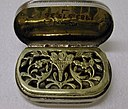
Vinaigrette: a small hinged container, often silver, which held a sponge soaked in vinegar and ammonia, and sometimes a drop of perfume. The pungent odor helped revive a lady in a swoon or faint when waved underneath her nostrils. It was different from smelling salts but performed a similar function. A lady carried a tiny decorative box–such as the one pictured–in her reticule, along with a handkerchief, and a few coins. After all, a lady must always be prepared.
Vowels: Literally, they are I.O.U.s which could be written informally as a debt of honor or as a legal document. According to Regency Researcher Nancy Mayer, vowels were not enforceable by law if they were merely handwritten by the debtor. However, “Many gambling clubs had rooms they called ‘Jerusalem rooms’ where money lenders had agents write out legal debts. They were only issued to people of higher classes. An I.O.U. signed, witnessed, and had a stamp attached to it, was treated as a legal debt.” A gentleman’s honor was at stake if he refused to pay his vowels.
Waistcoat (also spelled weskit because that’s how it was most commonly pronounced during the Regency): a vest that a gentleman wore over his shirt, often elaborately embroidered or striped in bright colors, a more flamboyant version of the vest that men of today wear with a three-piece suit.

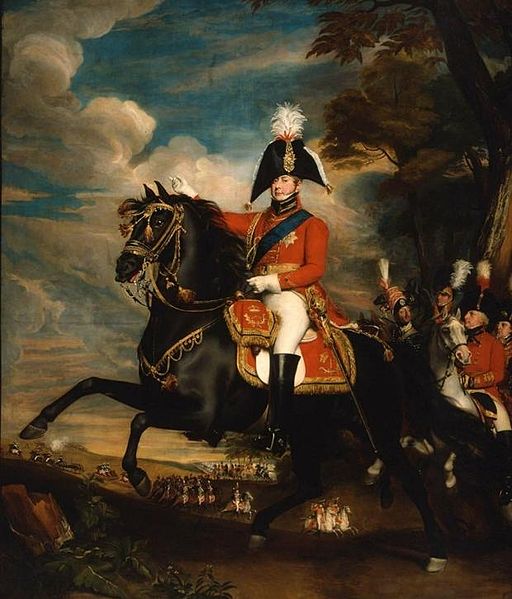

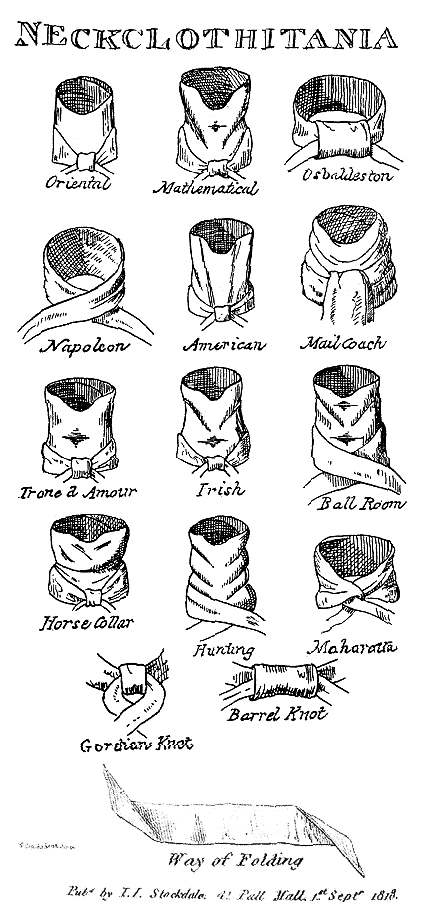
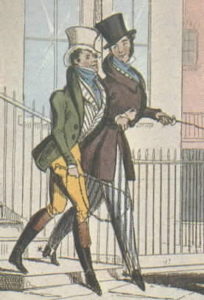
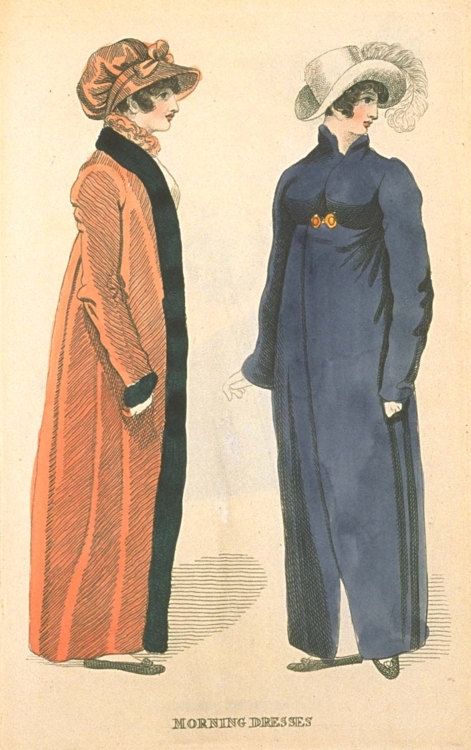
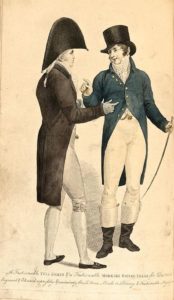
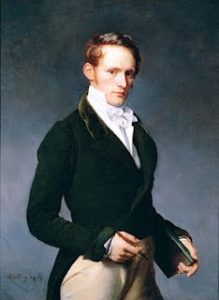
Maybe vinaigrette needs to be added? Historical definition.
Excellent suggestion! I have done so. Thank you!
You say that the word ‘rake’ is often incorrectly used interchangeably with ‘roue’ or ‘libertine,’ but then you don’t define those other terms or explain the difference.
Other possible words:
* Bath bun (Check out ‘Tasting History’ YouTube episode about the Sally Lunn bun.)
* Fall (front part of trousers)
* French letter (And why the heck was it called that?)
* Negus (drink) <–I've made this, and it's tasty!
* Orgeat (drink)
* Ratafia (drink)
You’re right. I should clear that up. Rake means not only a womanizer but a gambler and excessive drinker. Roue and Libertine are specific to womanizers. Thanks for the other suggestions. Since I haven’t used any of those words in my own writings, I hadn’t thought to add them to my site.
Hello,
I am reading Pride and Prejudice and came across the saying by Mrs Bennet upon Lizzie refusing Mr Collins “caring no more for us than if we were at York” Knowing Austen, I cannot believe that this is explained by the simplistic reason that York is far away – are you aware of any saying current in the Regency which relates to York? I am always looking for the subtleties which are lost on the modern reader and suspect this to be an example – but have not yet been able to trace it.
With sincerest compliments,
Chris Oswald
Regency Rum Bluffers
I’ve checked all my sources and asked fellow researchers and as far as I can determine, it’s another way of saying out of sight out of mind. If there are any other subtleties, it’s lost to us modern readers.
What does “to run upon tick” (as regards gambling) mean in “Faro’s Daughter” by Georgette Heyer? Is it one of her “heyerisms”?😅 thanks! Btw, love your site, especially the illustrations!🥰🥰🥰
Hi Linda,
Thanks so much for visiting my site. “Run upon a tick” isn’t a familiar term to me. It could be a Hyerism or just one of those things that I didn’t notice. I keep meaning to purchase a searchable version of all the Austen works but I don’t have one yet. If I did, I could easily find out if she used that term in any of her writings. Depending on the context, it could mean anything. Sorry can’t be of more help.
Hi
Tick means credit, so to run upon tick means to play or purchase now, and pay later. This is still a common usage English term.
Linda, another reader had an answer to your question: Tick means credit, so to run upon tick means to play or purchase now, and pay later.
I can’t find ‘demi-beau’ anywhere. I’ve come across it often in Georgette Heyer books. I even Googled it, but no luck.
Thank you for this wonderful list. I was wondering if you had a list of words/phrases that men use to speak to each other for example.
Old boy!
Good fellow.
top of the trees.
Hi and thanks so much for stopping by my blog. I’m so happy that you find my list helpful! I don’t have a list of terms like that but that’s an excellent idea. I’ll start working on that. Feel free to let me know if any that you find too.
I very much appreciate your efforts to gather and define Regency English vocabulary! I am a Jane Austen fan.
Hi Debra, thanks so much for your comment. I’m so glad you found my glossary useful and I hope you stop back by again. If you run across a word that I don’t have listed, feel free to let me know.
tthanks again!
Top-of-the-trees appears in Georgette Heyer’s ‘A Civil Contract’ (and doubtlessly in other works by her or others!) and going by context, means excellent:
“And you said he was top-of-the-trees!”
“I didn’t say he was a magician!”
There are two other times in that novel that it’s used, all for the same subject in chapter eighteen.
Hi Donna, thank you for the Regency glossary. . I’m fond of Jane Austen and Georgette Heyer books. Here are a couple of interesting words in Heyer’s book to add.
1. WIND SUCKER
2. SLOW TOP
Have a lovely weekend.
In G. Heyer’s short story, “Hazard”, 1/2 brother refers our heroine as”my jade of a sister”. What is meaning of “jade” in this context. It doesn’t sound like a complimentary term.
That’s one of the few Heyer novels I haven’t read, so I’d have to read the context to be sure, but it might be related to the term ‘jaded.’ Does that fit the story?
Hi Donna, i have just come upon your site and I think its wonderful. I wanted to ask if you would know about how certain terms were used in the regency era and how they differ in current usage. For example, in Georgette Heyer’s Venetia, she constantly refers to her mother’s husband as her father-in-law, when nowadays we would refer to him as her step father. He also sometimes referred to her as his daughter in law? So were those really the terms used in that manner during the Regency era?
They were, but modern readers find them confusing so most of today’s authors of historical novels stick with modern terms for that kind of thing.